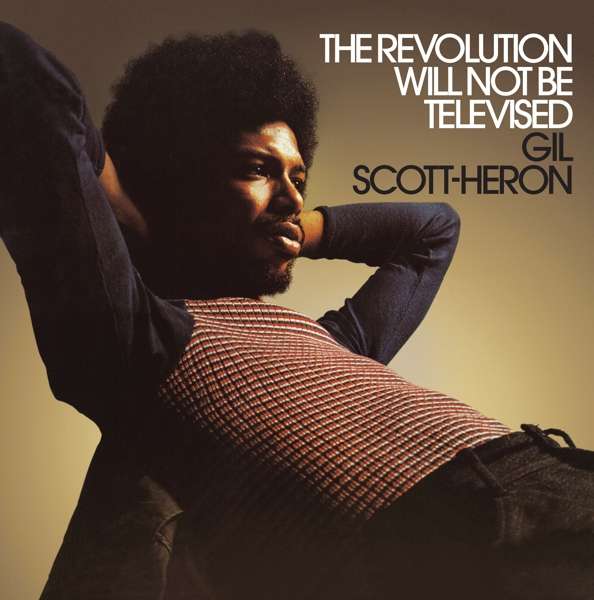Poet, novelist, musician, and songwriter Gil Scott-Heron was born in Chicago, Illinois on April 1, 1949 to parents Bobbie Scott Heron, a librarian, and Giles (Gil) Heron, a Jamaican professional soccer player. He grew up in Jackson, Tennessee where he was active in the integration of the city’s public as one of the first of three African Americans to enroll in the former Jackson Junior High School. He later moved to the Bronx, New York, where he attended DeWitt Clinton High School. Heron attended Lincoln University in Pennsylvania and received an M.A. in creative writing from Johns Hopkins University.
By age thirteen, Scott-Heron had written his first collection of poems. In 1968, he published his first novel, The Vulture, a murder mystery. Central themes include the devastating effects of drugs on urban black life. Four years later, Scott-Heron published his second novel, The Nigger Factory (1972), which is set on the campus of a historically black college (HBCU). It focused on the conflicting ideologies among the traditional, Eurocentric-trained administrators; the younger, more nationalistic students—founders of Members of Justice for Meaningful Black Education (MJUMBE); and the moderate students and their leader, Earl Thomas.
Scott-Heron released more than fifteen albums and was best known as a musician and songwriter. In 1970, he released his first album, New Black Poet Small Talk at 125th and Lennox, Pieces of Man (1971), Free Will (1972) and Winter in America (1974). These albums include such classic works as “The Revolution Will Not be Televised,” “Lady Day and John Coltrane,” “Whitey on the Moon,” “No Knock On My Brother’s Head,” and “Home Is Where the Hatred Is.”
Known for his spoken word performances, Scott-Heron walked onto the international stage simultaneously as did many of the Black Arts Movement poets, including Amiri Baraka, Haki Madhubuti, Sonia Sanchez, and Nikki Giovanni. He shared their conviction that art must be functional; therefore, as artist and communal leader, he must embrace his role as a significant political voice committed to the liberation of black people. Scott-Heron’s cacophonous voice resonated as well with that of Malcolm X, the militant prophet-leader of the Nation of Islam who inspired a generation to address the needs and condition of the urban black masses. The electric, edgy, angry sounds he created with his fusion of soul, jazz, blues, and poetry—often in collaboration with musician Brian Jackson—made him a forerunner to a later generation of rap artists, particularly such socially conscious rappers as Tupac Shakur, Jay Z, Common, and Kanye West.
Gil Scott-Heron released his last album, We’re Still Here, in 2011. He died in a Manhattan hospital on May 27, 2011. He was 62. In May 2021, Scott-Heron was selected as an inductee into the Rock & Roll Hall of Fame.

